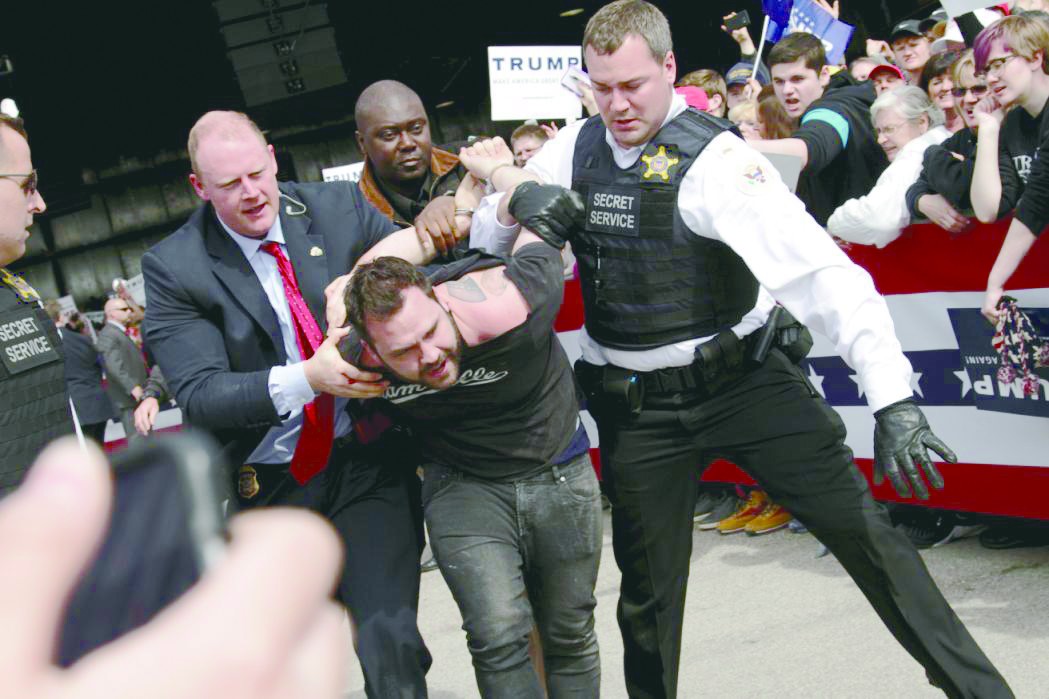
Trump: The Populist Joke that Became a Reality
Trump is a bit like the young “Monkey King" of American politics, showing up and turning everything upside down. He repeatedly makes remarks with strong racist overtones, castigates ethnic Mexicans as "rapists," and promotes the building of a "Great Wall" on the U.S.-Mexico border. He also opposes the entry of Muslims into the United States, publicly refuses to condemn the Ku Klux Klan, and disrespects famous female television hosts. He seems to be deliberately challenging the "political correctness" of United States political circles.
Some analysts believe that Trump is an “accidental” hero of the Republican election. In the beginning, nobody took any notice of this narcissistic old man with a bit of money and a penchant for saying irritating things — he was just a "clown" who helped draw some attention to the Republican primary election. However, nobody imagined that this "buffoon" would actually become a big deal, knocking out the Republican Party's favored candidates one by one.
The entire mainstream of the Republican Party dislikes Trump. If Trump should win the primary, then the Republican Party will face an excruciating decision: whether or not to actually nominate him as the Republican candidate for president. Nominating him would not agree with the Republican Party's conventional values, and it would increase the likelihood of losing to the Democrats. Not nominating him leaves open the possibility that Trump will run as an independent candidate, splitting the Republican vote and handing the Republicans an even more dramatic loss.
Some say that Trump is "eating the Republican Party's food and breaking its cooking pot” — quite the vivid image.
The phenomenon of Trump can be said to have revealed the upheaval of thought within American society. According to analyses, his main supporters are lower-class whites who feel they have had enough of post-financial crisis America. The United States has always had the largest and most stable middle class in the West, but in the last few years, the middle class has been diverging, with a minority of them rising upward and the majority sliding downward, pressed to the point of appearing less and less a part of the middle class.
Through quantitative easing and other tricks, the United States has restored some surface prosperity to its economy, but the benefits of these changes have not reached down to the middle class. Much anger at globalization and domestic problems has built up in the depths of American society, which needs someone to help them vent.
Trump came at just the right time. He has a big mouth. He defies convention. He is foul-mouthed, often speaking emptily about "beating” or “roughing up” some such person or other; populism must make its supporters feel like they are getting satisfaction. Most general elections are incapable of improving the fate of the people, something Americans know through experience. So why not take the opportunity to vent a little? Thus, the number of Trump supporters continues to increase, creating the "accidental hero” of the above-mentioned scholars.
The rise of a nationalist in American politics has also caused unease around the world. American politics are usually predictable, but Trump represents an unpredictable reality where "anything is possible." Trump's willingness to castigate anybody internationally seems to be genuine; he even dares to challenge possessors of nuclear weapons. In the international realm, there are always people comparing him to Mussolini or Hitler, voices that come from both the West and developing countries.
The Western history of elections has already taught us difficult lessons about what happens when a great dictator is elected, but currently, the majority of analysts still believe that the United States electoral system will ultimately prevent Trump from becoming president. He likely will turn out to be a "false alarm" in American democracy.
Still, the rise of Trump, even as a “false alarm,” is too much. The strength of the influence he has exerted up to this point has already clearly given the message that the United States is "sick." This sickness is both a result of accumulated stress from present conflicts and also the realization of latent systemic problems.
With internal populism at such a fever pitch, one can infer how much potential energy American society’s outward-facing nationalism must have accumulated. Perhaps, the United States needs to rigorously guard against unleashing its power to destroy world peace; that would be much more meaningful in reality than its criticism of any "nationalism" or "tyranny" in other countries.

